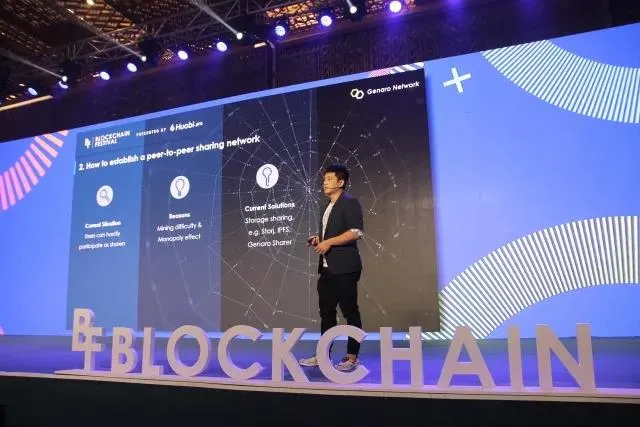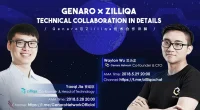Greetings everyone! I’m Larry, the founder of Genaro Network. I’m honored to have been invited by Huobi to share my insights on blockchain technology. Today, I’ll discuss seven major challenges facing public chains and potential solutions to these issues.
We envision a future dominated by the sharing economy within smart cities, where direct peer-to-peer interactions are commonplace, and trust is inherent. Technologies like blockchain are key to realizing this vision. However, we must acknowledge and address the challenges ahead. I’m thrilled to be part of this journey towards a more interconnected and remarkable future.
It’s encouraging to see numerous diligent projects contributing to this ecosystem, all aiming for scalable technological integration into the market. Remember, the best technological innovations should not only meet market demands but also provide practical applications. For example, Bitcoin, despite its peer-to-peer financial system breakthrough, now faces limitations such as slow transaction speeds (TPS). As market demands evolve, developers must continually innovate to enhance technology and address these emerging challenges.
At Genaro Network, we are confronting these issues and have proposed our unique solutions. Let’s delve into some of these challenges:
- Sustainable Consensus Mechanism: Traditional Proof of Work (PoW) mechanisms, while effective in maintaining blockchain integrity, are incredibly energy-intensive and not geared towards meaningful computation. To mitigate this, there’s a shift towards Proof of Stake (PoS). However, PoS alone can lead to security vulnerabilities like the long-range attack. Our goal is to develop a consensus mechanism that combines utility with security.
- Peer-to-Peer Sharing Network: The challenge here is to encourage equitable resource distribution in a system where everyone can share and earn rewards. We’re exploring ways to diversify shareable resources beyond computational power to include storage, data, and more.
- Enhancing Blockchain TPS: Improving transactions per second is crucial. Solutions range from sharding techniques, increasing block sizes, to off-chain transactions. However, these often compromise on security or decentralization. Finding a balance that maintains security while increasing efficiency is key.
- Decentralized Storage for DAPPs: Most DAPPs still rely on centralized cloud services, which poses a problem for blockchain’s decentralized nature. Our focus is on integrating decentralized storage solutions directly with the public chain.
- Data Channels Between Blockchains and the Real World: Bridging the gap between blockchain data and real-world data is complex due to the difficulty in verifying external data sources. Creating reliable and secure data channels is essential for real-world applications of blockchain.
- Sustainable Token Model: Current models face issues like high transaction fees and over-reliance on mining rewards. We’re investigating alternative models, including those that integrate fiat currencies, to create a more sustainable ecosystem.
- Blockchain Governance: Decentralized governance poses its own set of challenges. Unlike traditional organizational structures, blockchain requires innovative approaches to decision-making and incentivization.
On a concluding note, Genaro Network is at the forefront of these innovations. We’ve just released the first edition of the GSIOP protocol and launched the Genaro Alpha One (G.A.O.), marking significant milestones in cross-chain technology and smart data ecosystems for DApps.
For those interested in secure file storage and sharing, our latest versions, Genaro Eden and Genaro Eden Sharer, offer a robust solution while enabling you to earn GNX tokens.
Thank you for joining me in this discussion. If you have any questions, I’m here to answer them! And don’t forget to check out our technical yellow paper for more in-depth information.


